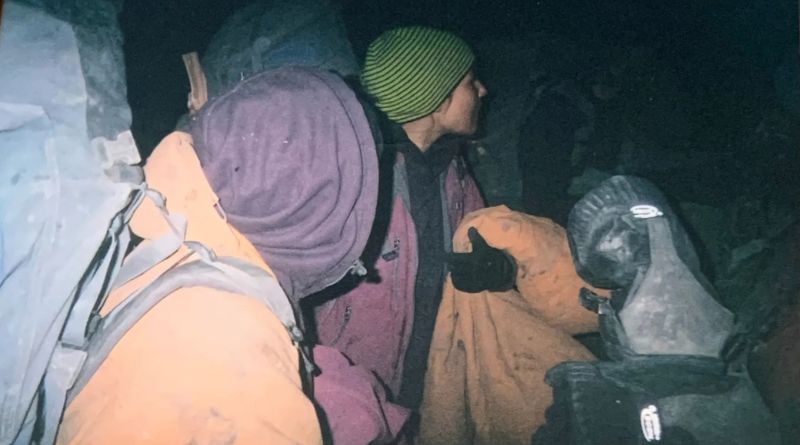Trails Carolina is a wilderness therapy program located in the remote mountains of North Carolina. It’s designed to help troubled teens and young adults by using nature as a backdrop for personal growth, self-reflection, and emotional healing. While the program has received positive feedback from many families, it is not without its dark side. Over the years, Trails Carolina horror stories have surfaced, revealing troubling accounts of mistreatment, questionable practices, and unsettling experiences that have left some former participants and their families shaken.
Table of Contents
In this article, we will delve into some of the most chilling Trails Carolina horror stories, examine the potential issues surrounding wilderness therapy programs, and provide a balanced perspective on what you should know before enrolling in such a program.
What is Trails Carolina?
Trails Carolina is a wilderness therapy program that provides therapeutic interventions for adolescents and young adults struggling with various emotional, behavioral, and psychological challenges. These challenges might include issues such as anxiety, depression, ADHD, substance abuse, trauma, and more.
The program typically involves outdoor expeditions, group therapy, individual therapy sessions, and skill-building activities meant to foster growth and self-awareness. Participants are immersed in a natural environment where they are encouraged to confront their emotional struggles and work toward personal development. The program has garnered attention for its blend of adventure and therapy in a pristine outdoor setting.
The Dark Side: Trails Carolina Horror Stories
While many families have praised Trails Carolina for its transformative impact, there have been unsettling accounts from former participants who claim to have had traumatic experiences during their time in the program. These Trails Carolina horror stories often paint a disturbing picture of harsh conditions, questionable methods, and psychological distress.
1. Harsh and Overbearing Staff Practices
One of the most consistent complaints from former participants is about the staff members at Trails Carolina. Some have reported that staff were overly harsh and aggressive, using intimidation tactics instead of offering support. Allegedly, there were instances where staff members would yell at students, belittle them, or enforce rigid rules without explanation.
Some teens have shared experiences of being treated with disdain rather than care, making the therapeutic experience more painful than helpful. The atmosphere that some describe is not one of healing but of fear, as participants felt they were constantly walking on eggshells, unsure of what might set off a staff member.
2. Dangerous Physical Activities
Wilderness therapy programs often incorporate physically demanding activities to push participants beyond their comfort zones and teach resilience. However, several Trails Carolina horror stories have highlighted instances where physical activities were taken too far, putting participants at risk.
One common issue involves the physical challenges that teens are expected to complete, sometimes under unsafe conditions. For example, there have been reports of hikes through treacherous terrain without proper equipment, as well as activities that pushed participants past their physical limits, resulting in injury. Some families have expressed concerns that the program focused more on pushing boundaries for the sake of behavior modification than prioritizing safety and well-being.
3. Lack of Proper Medical Attention
In a wilderness therapy setting, access to immediate medical care can be limited. However, there have been accounts from former participants claiming that when they were in need of medical assistance, such as for a serious injury or mental health crisis, the response from staff was insufficient or delayed. In some instances, students reported being left without proper medication for mental health conditions, which exacerbated their anxiety, depression, or other issues.
This lack of medical attention raised alarms for families who expected a higher level of care given the substantial cost of these programs.
4. Psychological and Emotional Harm
Perhaps the most disturbing of the Trails Carolina horror stories involves reports of emotional and psychological harm. Wilderness therapy programs, including Trails Carolina, use a technique called “tough love,” where students are often forced to confront their issues in a way that can feel confrontational or extreme.
For some participants, this method may have been too intense and led to feelings of emotional distress, isolation, and powerlessness. Many former attendees claim that their experience left them feeling more damaged than when they arrived. The combination of isolation from family and a rigid, sometimes punitive environment can exacerbate mental health issues and create lasting trauma. For some, it seems that the program’s approach focused more on breaking down their defenses rather than building them back up.
5. Manipulation and Coercion
Some families have reported that the program uses manipulative tactics to get parents to send their children to Trails Carolina, painting an overly rosy picture of what the program entails while glossing over potential downsides. In some Trails Carolina horror stories, parents were reportedly pressured into enrolling their children under false pretenses, with promises of positive transformations that didn’t materialize.
Additionally, some former participants have described a sense of being manipulated by staff members who would prey on their insecurities or vulnerabilities. These experiences have led some to question whether the program uses coercion to keep teens enrolled or to prolong their stay, rather than allowing for healthy and gradual progression toward recovery.
Investigating the Reports: A Deeper Look
While these Trails Carolina horror stories are undeniably concerning, it’s important to approach them with a sense of nuance. Wilderness therapy programs, by nature, involve tough experiences designed to push individuals outside their comfort zones, but the balance between challenging participants and ensuring their safety and well-being is delicate.
The question remains whether some of these accounts represent isolated incidents or if there is a systemic issue within Trails Carolina and similar programs. In any case, it’s clear that parents and prospective participants should conduct thorough research, read reviews, and carefully consider whether a wilderness therapy program is the right choice.
What Can Be Done to Prevent Negative Experiences?
If you are considering enrolling a child or loved one in Trails Carolina or another wilderness therapy program, here are some steps you can take to ensure the best possible experience:
1. Research Thoroughly
Before enrolling in any program, make sure to thoroughly research the facility. Look for reviews from multiple sources, including former participants, therapists, and parents. If possible, contact alumni or families who have had personal experience with the program to get a more balanced perspective.
2. Check for Accreditation
Accreditation from reputable organizations such as the Outdoor Behavioral Healthcare Council (OBH) can be a sign that the program follows established guidelines for safety, ethics, and care. Ensure that Trails Carolina or any program you consider has proper accreditation and adheres to best practices in therapy.
3. Visit the Program in Person
If possible, visit the program in person before making a decision. This allows you to assess the facilities, meet staff, and get a sense of the environment. Speak with program directors to understand how the program works and ensure that your concerns are addressed.
4. Involve Your Child in the Decision
If your child is old enough, involve them in the decision-making process. Wilderness therapy can be a life-changing experience, but only if the individual is committed and open to the process. This ensures that your child is not being sent to the program against their will.
FAQs about Trails Carolina Horror Stories
1. Is Trails Carolina a reputable program?
Trails Carolina is a well-known wilderness therapy program with both positive and negative reviews. It is important to research thoroughly, as the experience can vary widely for different participants.
2. What are the common complaints about Trails Carolina?
Common complaints include harsh staff practices, lack of proper medical care, dangerous physical activities, emotional harm, and manipulation or coercion of families.
3. Are wilderness therapy programs safe?
While wilderness therapy programs can offer benefits, safety is a major concern. Ensure that the program is accredited, has appropriate staff-to-student ratios, and follows ethical practices to minimize risks.
4. How can I ensure my child’s safety in a wilderness therapy program?
Research the program thoroughly, check for accreditation, and ask about the qualifications of staff members. Visiting the program and speaking with other families who have experience can also help ensure your child’s safety.
5. What alternatives to wilderness therapy exist?
If you are concerned about the potential drawbacks of wilderness therapy, consider other options like residential treatment programs, family therapy, or outpatient counseling. Each child is different, so it’s important to find the right fit for their needs.






